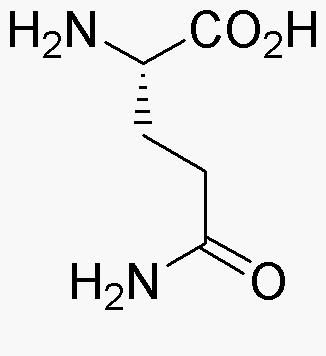L-Glutamine, from non-animal origin, is widely utilized in research focused on:
- Nutritional Supplements: Commonly used in dietary supplements to support muscle recovery and enhance athletic performance, particularly in endurance sports.
- Pharmaceuticals: Plays a critical role in formulations aimed at treating conditions like irritable bowel syndrome (IBS) and other gastrointestinal disorders due to its ability to support gut health.
- Cell Culture: Essential in laboratory settings for cell culture media, promoting cell growth and maintenance, which is vital for biopharmaceutical research and development.
- Neuroprotection: Investigated for its potential in neuroprotective therapies, helping to support brain health and cognitive function, particularly in aging populations.
- Immune System Support: Used in clinical nutrition to enhance immune response, especially in patients undergoing stress from surgery or illness, aiding in recovery.
General Information
Properties
Safety and Regulations
Applications
L-Glutamine, from non-animal origin, is widely utilized in research focused on:
- Nutritional Supplements: Commonly used in dietary supplements to support muscle recovery and enhance athletic performance, particularly in endurance sports.
- Pharmaceuticals: Plays a critical role in formulations aimed at treating conditions like irritable bowel syndrome (IBS) and other gastrointestinal disorders due to its ability to support gut health.
- Cell Culture: Essential in laboratory settings for cell culture media, promoting cell growth and maintenance, which is vital for biopharmaceutical research and development.
- Neuroprotection: Investigated for its potential in neuroprotective therapies, helping to support brain health and cognitive function, particularly in aging populations.
- Immune System Support: Used in clinical nutrition to enhance immune response, especially in patients undergoing stress from surgery or illness, aiding in recovery.
Documents
Safety Data Sheets (SDS)
The SDS provides comprehensive safety information on handling, storage, and disposal of the product.
Product Specification (PS)
The PS provides a comprehensive breakdown of the product’s properties, including chemical composition, physical state, purity, and storage requirements. It also details acceptable quality ranges and the product's intended applications.
Certificates of Analysis (COA)
Search for Certificates of Analysis (COA) by entering the products Lot Number. Lot and Batch Numbers can be found on a product’s label following the words ‘Lot’ or ‘Batch’.
*Catalog Number
*Lot Number
Certificates Of Origin (COO)
This COO confirms the country where the product was manufactured, and also details the materials and components used in it and whether it is derived from natural, synthetic, or other specific sources. This certificate may be required for customs, trade, and regulatory compliance.
*Catalog Number
*Lot Number
Safety Data Sheets (SDS)
The SDS provides comprehensive safety information on handling, storage, and disposal of the product.
DownloadProduct Specification (PS)
The PS provides a comprehensive breakdown of the product’s properties, including chemical composition, physical state, purity, and storage requirements. It also details acceptable quality ranges and the product's intended applications.
DownloadCertificates of Analysis (COA)
Search for Certificates of Analysis (COA) by entering the products Lot Number. Lot and Batch Numbers can be found on a product’s label following the words ‘Lot’ or ‘Batch’.
*Catalog Number
*Lot Number
Certificates Of Origin (COO)
This COO confirms the country where the product was manufactured, and also details the materials and components used in it and whether it is derived from natural, synthetic, or other specific sources. This certificate may be required for customs, trade, and regulatory compliance.


